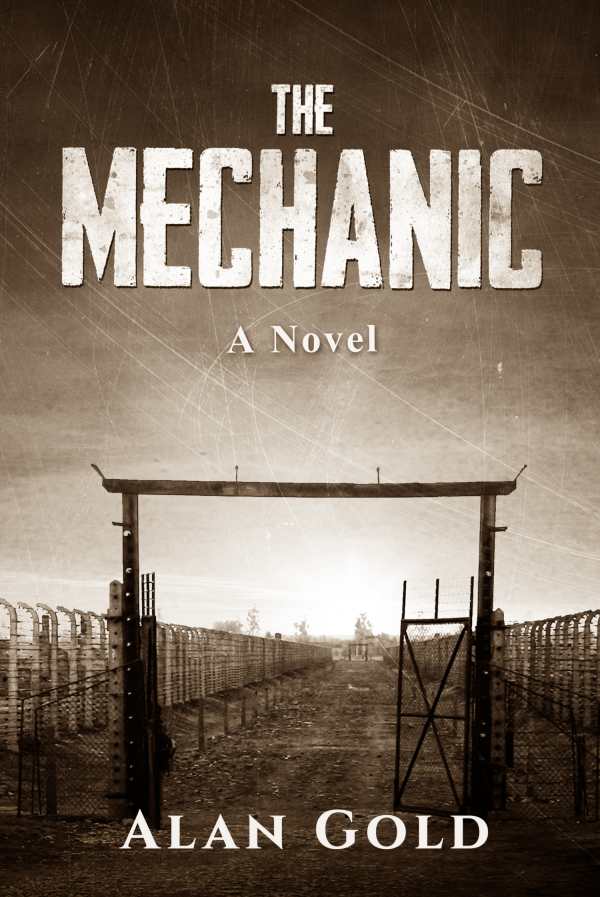The Mechanic
Gold’s is a gripping take on the question of culpability related to mass deaths, an account in which few escape unscathed.
Was he merely a cog in the machine, or a ruthless war criminal? Alan Gold’s The Mechanic follows a grieving granddaughter determined to honor her lost hero in the best way she can: by resuscitating the reputation of the man whom her grandfather failed to get exonerated at the Nuremberg Trials.
Chasca, following her grandfather’s funeral, finds a yellowed manuscript in his desk—the memoir of a Jewish man who claims to have been spared by the good will of an Auschwitz mechanic hanged as a war criminal. Encouraged by the strong sense of justice her grandfather instilled in her, she takes this manuscript to Yad Vashem, and then to the grandchildren of the supposed criminal, hoping to initiate a new trial, to elevate him from national scourge to hero.
Interspersed with her travels are accounts from the memoir, in which a survivor, Gutman, recalls the horrors of the camps and the chance encounters with mechanic Wilhelm Deutch, who risked much to keep him alive. Deutch, charged with keeping the Auschwitz-Birkenau ovens running, finds a way to subvert the Nazis’ plans, one inmate at a time. But despite Gutman’s insistence that Deutch is a good man, he proves a challenge for his lawyer, assuming no blame and couching himself as a victim of the Allies. His trial brings up more questions than it answers, and Gutman, who writes so eloquently of what he owes the man, remains conspicuously absent as a witness for the defense.
The Mechanic troubles perennial questions related to accountability and genocide. As the two men’s stories, forced together by Chasca, threaten to reconverge, clear notions of guilt and innocence become murkier.
A shocking conclusion helps to clarify how much responsibility falls on the shoulders of those who knew what the Nazis were doing, but whose subversive actions could not stop the Holocaust. Gold’s is a gripping take on the question of culpability related to mass deaths, an account in which few escape unscathed, and through which some measure of peace—or, at least, of certainty—is available.
Reviewed by
Michelle Anne Schingler
Disclosure: This article is not an endorsement, but a review. The publisher of this book provided free copies of the book to have their book reviewed by a professional reviewer. No fee was paid by the publisher for this review. Foreword Reviews only recommends books that we love. Foreword Magazine, Inc. is disclosing this in accordance with the Federal Trade Commission’s 16 CFR, Part 255.

